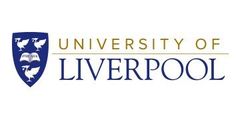Civil Engineering BEng (Hons)

This broad-based Civil Engineering programme provides sound academic training for the professional engineer.
Civil engineering graduates are in great demand. Careers in civil and structural engineering offer some of the highest paid jobs for graduates in the UK (source: Telegraph Graduate jobs: Top 10 starting salaries, June 2017).
As well as covering all the required bases of a civil engineer’s education, key features of the programme are the individual and group projects that students undertake in all years of their studies, applying their learning in context, with industrial feedback and an emphasis in engaging with the digital world of civil engineering.
These programmes are accredited by the Joint Board of Moderators, which represents the four major civil engineering institutions and accredits civil engineering programmes on behalf of the Engineering Council, which sets and maintains the standards for the engineering profession in the UK. The MEng degree is accredited as fully satisfying the educational base for a Chartered Engineer (CEng). The BEng degree is accredited as: (i) fully satisfying the educational base for an Incorporated Engineer (IEng) and (ii) partially satisfying the educational base for a Chartered Engineer (CEng).
A programme of accredited further learning will be required to complete the educational base for CEng. See jbm.org.uk for further information and details of further learning programmes for CEng.
This is a vocational programme which aims to provide the educational base for civil engineering graduates who demonstrate ingenuity whilst being practical, articulate, numerate, literate, imaginative, versatile, confident and inquisitive.
The BEng programme (H200) shares the same core modules as the MEng programme (H202) during all three years of study. Students taking the BEng programme, who have reached the required academic standard in their studies, are eligible to transfer to the MEng programme at the end of their Year Two. In Year Four, the MEng students study more specialised fields of civil engineering at an advanced level including: structural and geotechnical engineering and construction management. Additionally they undertake a mutidisciplinary project, extending across both semesters of the academic year.
Programme in detail
You will be introduced to the essentials: structural analysis and design; fluid mechanics and hydraulics; geomechanics; materials; transport and infrastructure; the digital built environment and its digitisation. Year One includes an introduction to programming and a year-long civil and architectural engineering project, which in recent years, has been carried out in conjunction with Engineers Without Borders, an international engineering charity.
You will study maths relevant to engineering; structural materials; computer-aided drawing, analysis and design, and will be introduced to the principles of management for the construction industry. Site visits are integral to the programme, as are various individual and group design exercises.
An exciting part of the second year of our programme is a week of real, hands-on construction experience at ‘The Constructionarium’. The Constructionarium takes place at a six hectare site, specifically designed and built to provide a range of challenging teaching and learning conditions for students. There is an additional cost of up to £250 for the Constructionarium.
The programme gives you the opportunity to undertake an individual research project in Year Three. Teaching staff offer projects based on their research expertise. In Year Three, you can choose options modules based on areas of specialisation of the staff, currently these include: ‘risk and uncertainty: numerical application’; ‘structural steelwork; timber and masonry’; ‘structural dynamics’; ‘earthquake engineering, coastal and estuary processes’; ‘energy and environment’ and ‘materials for durable and sustainable construction’.
Stojant į šį universitetą dėmesys yra kreipiamas į pažymius ir egzaminų rezultatus. Brandos atestato vidurkis turi būti ne žemesnis nei 9 bei bent trys dalykai A lygiu ne mažesniu vidurkiu kaip 9 + trys valstybiniai egzaminai ne mažiau nei 80% (vienas iš trijų egzaminų negali būti anglų kalbos), (kai kurioms programoms gali reikėti didesnio vidurkio ir egzaminų rezultato).
Pažymių išrašas - jei dar nesi baigęs mokyklos, būtina prisegti pažymių išrašą. Smulkesnę informaciją kaip pildyti išrašą ir kada jis reikalingas, rasi čia. *
Brandos atestatas – jei jau esi baigęs mokyklą, išrašo nereikia, užtenka prie Kastu stojimo anketos prisegti savo Brandos atestatą.
Svarbu, jog anglų kalbos testo rezultatai uiversitetą pasiektų iki Liepos 31d.
Anglų kalbos žinias gali patvirtinti vienu iš šių būdų:
IELTS - 6.5 ir ne mažiau nei 5.5 visose užduotyse.
TOEFL – 90
The University of Liverpool’s Careers & Employability Service maximises opportunities for career prospects, graduate opportunities, student summer placements and the annual engineering careers fair with 30 blue chip companies attending (including Jaguar Land Rover, Nestle, Toyota, JCB, British Army, United Utilities, ABB Ltd, Network Rail, BAE Systems and many more). Our degrees provide pathways into rewarding careers and our graduates have found employment in a wide range of international industries and organisations.
Our research-led teaching ensures that we incorporate the latest advances in cutting edge engineering research. 95% of our research is deemed world leading or internationally excellent, and is highly regarded by engineering industries and partners. As well as achieving a degree qualification, you will graduate as an industry-ready engineer who has both practical experience and highly desirable skills to the engineering industry.
Work experience opportunities
Many students undertake placements during the summer or for a full academic year in leading engineering companies.

